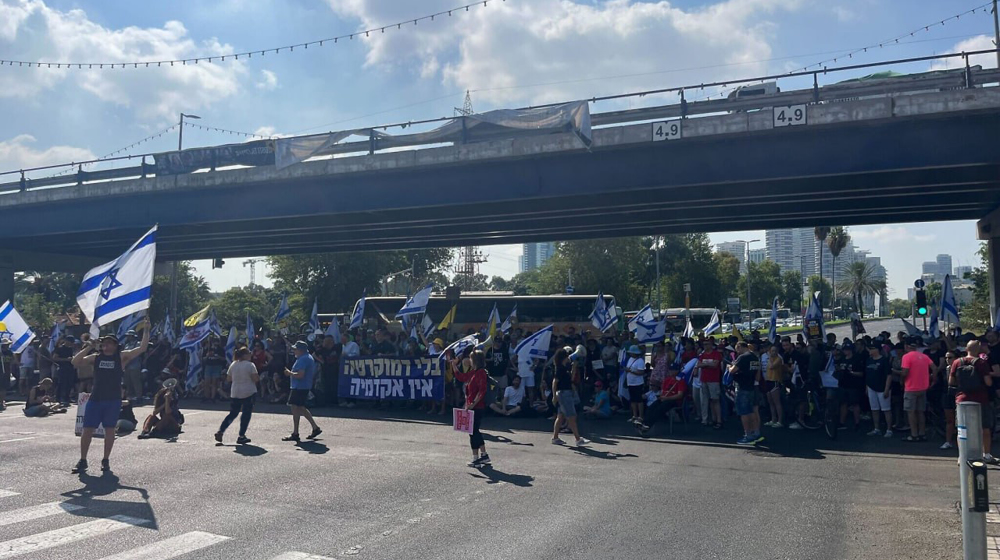
Protesters demanding a deal with the Palestinian Hamas resistance movement for the release of captives being held in the Gaza Strip block the Namir Highway in Tel Aviv on Monday, September 2
Tel Aviv, September 2 (RHC)-- A general strike that is poised to shut down the entire Israeli economy is underway across the 1948 occupied territories to pressure the incumbent cabinet led by prime minister Benjamin Netanyahu to reach a deal that would ensure the release of captives held by Hamas in the Gaza Strip.
The largest Israeli labor union, known as Histadrut, called the strike after the bodies of six Israeli captives were found inside a tunnel in the southern Gaza city of Rafah. Dozens of protesters blocked Ibn Gvirol Street in the coastal city of Tel Aviv, demanding that the ruling administration reach a deal as soon as possible.
Protesters also gathered at Shilat Junction near Modiin and blocked a road in the city of Rosh Pina at the northern side of the occupied territories.
According to a list from the Histadrut and statements from some cities, municipalities, including Tel Aviv and Haifa, have declared they would join the strike. The list goes on to include many ministries like the interior ministry, and parts of the prime minister’s office.
Israel’s biggest universities, including Tel Aviv University, have also announced that they will join the strike. Israeli opposition leader and former prime minister Yair Lapid said he supported the strike.
Meanwhile, Tel Aviv’s Ben Gurion International Airport will also halt departure and arrival flights for two hours from 8 a.m. local time (0500 GMT) as part of the action.
On Sunday, Israel’s Ministry of Finance said workers who join the strike risk not being paid by employers. Based on basic Israeli labor rules, wages will not be paid to those who are absent and take part in the strike, it asserted.
Gaza ceasefire negotiations between Israel and the Palestinian Hamas resistance movement have dragged on for months. Many blame Netanyahu for the failure to conclude a deal. Netanyahu has taken a tough line in the talks, and repeatedly said that military pressure is needed to bring back the captives.
According to Israeli media, the 74-year-old chair of the Likud party has feuded with the regime’s high-profile officials who have said a deal should be struck urgently.
Hamas has offered to release Israeli captives in return for an end to the genocidal war on Gaza, the withdrawal of Israeli forces and the release of a large number of Palestinian prisoners.
The Palestinian resistance group has said that dozens of captives were killed by Israeli airstrikes targeting Gaza.

